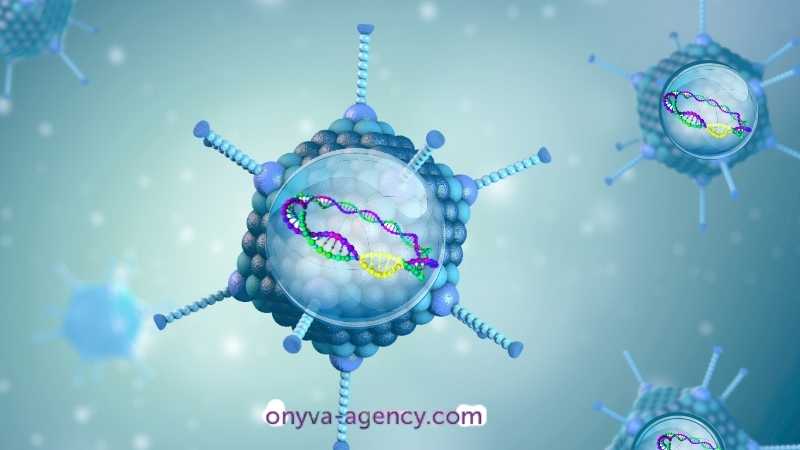AZD1222, a COVID-19 vaccine that has just undergone phase 3 trials, was co-developed by the spin-out company, Vaccitech, based at the University of Oxford and AstraZeneca. It uses a replication-deficient chimpanzee viral vector based on an attenuated (weakened) version of a common cold adenovirus. The latter has been modified to include the DNA sequence of the SARS-CoV-2 virus spike protein. As a result, this surface spike protein is produced in the recipients body post-vaccination. It is the most antigenic part of COVID-19, eliciting an antibody response, and priming the immune system to counteract future infections.
Overview of COVID-19 Vaccine Trial (Phase 3) Results:
Vaccine Name: AZD1222
Developers: Astra Zeneca + VacciTech (Oxford University) UK
Vaccine details: Chimpanzee Adenovirus vector (attenuated) + Sars-Cov2 spike protein DNA
Approach: Two dosing regimens (inadvertent – see below for explanation)
statistical significance: p-value <=0.0001
| Dose – Day 1 | Dose – Day 28 | Number of test subjects | Efficacy |
|---|---|---|---|
| Half dose | Full dose | n=2471 | 90% |
| Full dose | Full dose | n=8895 | 62% |
Figures released to the press [1] included a composite average efficacy of 70%. In reality there were effectively two trials, due to the difference in doses. The half dose was actually given in error initially, to 2.7K+ test volunteers. This subgroup who received an erroneous administration, actually produced the most pronounced efficacy (90%). Speculative theories around this suggest, the lower dose may stimulate T cell production of antibodies more effectively. Alternatively, the patients who received the higher dose on day 1 may have experienced a more pronounced reaction to components of the viral vector itself. Thus, the response to the second dose was blunted (62%).
Clearly, more research is needed to establish the cause. Additional data on the age and ethnicity breakdown of the individuals included in the higher efficacy subgroup would also be necessary to ensure the trial group was representative of the population at large and no biases were present. For example, an absence of individuals who were 65+, or from ethnic minority groups in the higher efficacy group, has a potential to skew results.
The researchers stated no severe cases of COVID-19 or hospitalisations were recorded in any patients, where the vaccine proved ineffective.
Note that whilst phase 1/2 trials of the vaccine have been published with peer-review [2], we still await the full results and data of the phase 3 trial.
The Oxford University and AstraZeneca team have also made a commitment to broad and equitable global access to the vaccine. https://www.ox.ac.uk/news/2020-06-05-oxford-university-s-covid-19-vaccine-next-steps-towards-broad-and-equitable-global
Pros & Cons of Adenovirus Vaccines Vs RNA vaccines
Pros
Cons
Update 30th December 2020:
The UK Medicines and Healthcare products Regulatory Agency (MHRA) authorised the emergency supply of COVID-19 Vaccine (AZD1222) for the immunisation of individuals 18 years+. This authorisation recommended the two full dose regimens be given – due to a lack of data for the half dose/ full dose regimen at present. They have recommended that the two identical doses be given with a 4 to 12 week interval.
Publisher: About Us – Onyva The Agency
We are a scientific marketing agency. We have continued to support clients through the current pandemic, producing technical literature, articles and digital marketing support relating specifically to COVID-19 for the medical, healthcare and biotechnology industries. Our scientifically trained team are able to combine up-to-date knowledge on the evolving pandemic, with decades of marketing experience to meet you needs.Take a look at our services.
Get in touch for marketing support: info@onyva-agency.com
References:
1. AstraZeneca Press Release: 23 Nov 2020 https://www.astrazeneca.com/media-centre/press-releases/2020/azd1222hlr
2. Folegatti PM, Ewer Kj et al., Oxford COVID Vaccine Trial Group. Safety and immunogenicity of the ChAdOx1 nCoV-19 vaccine against SARS-CoV-2: a preliminary report of a phase 1/2, single-blind, randomised controlled trial. Lancet. 2020 Aug 15;396(10249):467-478. doi: 10.1016/S0140-6736(20)31604-4. Epub 2020 Jul 20. Erratum in: Lancet. 2020 Aug 15;396(10249):466. PMID: 32702298; PMCID: PMC7445431.


